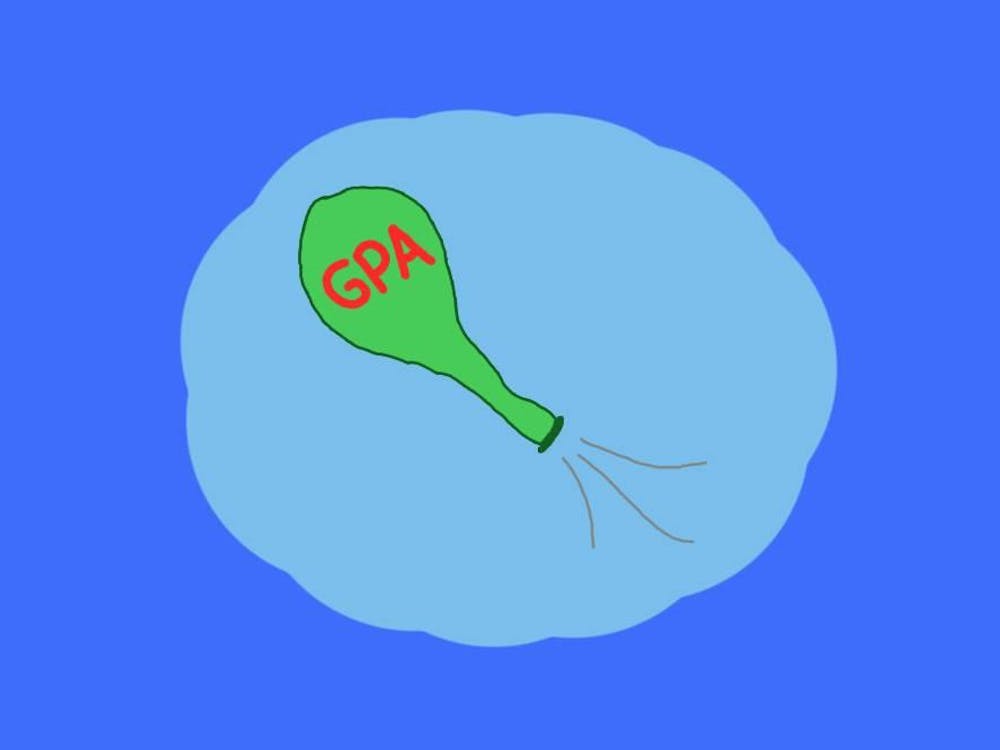THIS WEEK, just like last week and next week, there are tons of things to do at the University. I could listen to speakers on the history of nursing, cohabitation and non-marital child bearing, the muse at war, and soft gamma ray repeaters. I'm not close to being an expert on any of these topics, but most of them sound fascinating to me. No doubt, there is much to be learned from each of these speakers, who are either professors or other specialists in their fields. But will I -- or most of the students at the University -- attend any of these lectures? Not likely, considering my burden of academics and extra-curricular activities. I'd like to, but I just won't find the time -- unless it's required, that is.
The Fourth-Year Class Trustees are considering a proposal that would allow fourth-year students to design their own course. Students who take Fourth Year 401 would be required to attend two lectures or performances, each at least one hour in length, per week. Then class participants would meet in discussion sections led by professors to share what they learned from the events. Students would submit journal entries at each discussion as well as a 10 to 15 page paper at the end of the course.
This unique idea takes advantage of the extraordinary number of events that currently are held around Grounds. Busy students would make attendance a priority, which isn't likely now. If this class is offered, the students involved will see and hear about 28 different events in one semester.
Fourth Year 401 will increase the attendance at a variety of University events. The most convenient events for students to attend likely will be academic lectures, because three or four of these are offered daily, at different times. If speakers receive a warmer and larger reception from the University community, they are more likely to return. They also will speak well of their experience here, encouraging other speakers to schedule talks at the University.
Let me hazard a guess: A student's fourth year is a hectic, exciting time. Between finishing up requirements for a major, searching for a job, and trying to get everything possible out of the University before time's up, there's a ton to do. Fourth Year 401 could be one of the culminating experiences of a student's education at the University.
The class will allow students to experience events around Grounds that are related to their majors, gaining new insights and possible job connections, while awarding academic credit for their efforts. Perhaps more importantly, it gives students the freedom to pursue other areas of interest. Each week there will be an array of events occurring at the University, and the class promotes independent decision-making as students choose which to attend.
Melissa Huhn, a Fourth-Year Class Trustee and author of the proposal, said implementation of the course would help to show that the University is a "dynamic institution." A willingness to try a new and unique course also could pique the interest of prospective students and other universities. Instead of remaining stagnant in a textbook-laden tradition, this proposal allows students to take advantage of a variety of knowledge.
One tradition that this proposal does maintain, however, is that of student self-governance. Fourth Year 401 was designed by and for students, and this kind of active participation in the workings of the University is essential to its success. Often self-governance is viewed strictly in terms of the Honor and Judiciary Committees, but this is another, valuable way for students to govern their experience here.
The proposed class also promotes an intellectual community as originally envisioned in Jefferson's plan for an academical village. By attending lectures and discussions, fourth-year students will have the opportunity to interact closely with faculty members. This open exchange of information is a valuable -- but often overlooked -- part of a university.
Students who take this course will become more informed about the unique and challenging issues facing the world today. Speakers generally discuss new, pressing and complicated issues, while plays and music from past decades and even centuries are performed at the University because they still have relevance today. By learning about the modern world, students will gain practical knowledge for life after college.
Ideally, Huhn would like to see the proposal implemented by the spring semester. But she emphasizes that first it must be approved by the Trustees and President John T. Casteen III. Fourth Year 401 could be a valuable addition to our course offerings, and the University should not pass up such a valuable opportunity to enrich its curriculum and the lives of its students. This week, I won't learn about the history of nursing, cohabitation or gamma rays. But in two years, I hope I'll be able to.
(Jennifer Schaum is a Cavalier Daily associate editor.)




